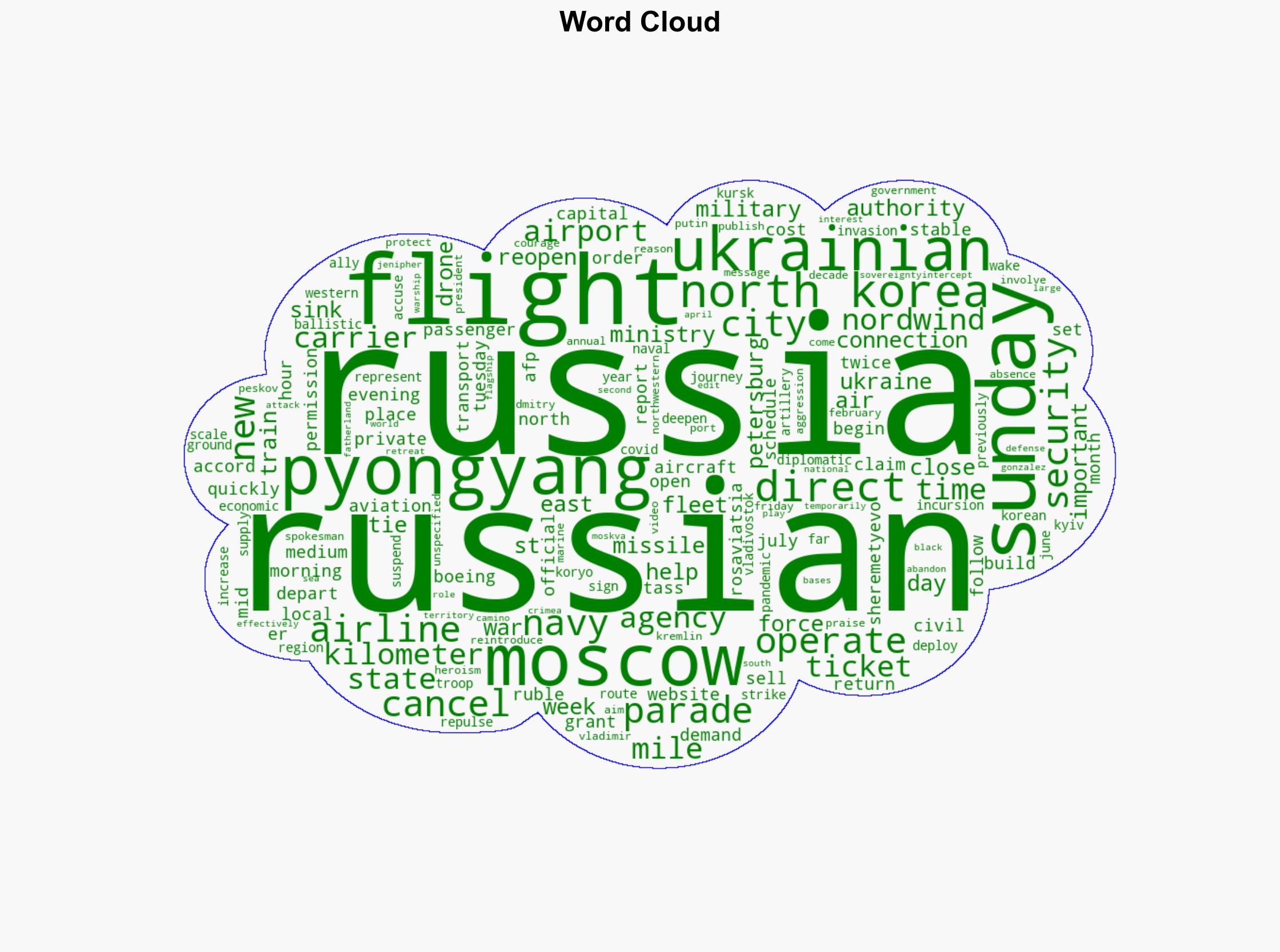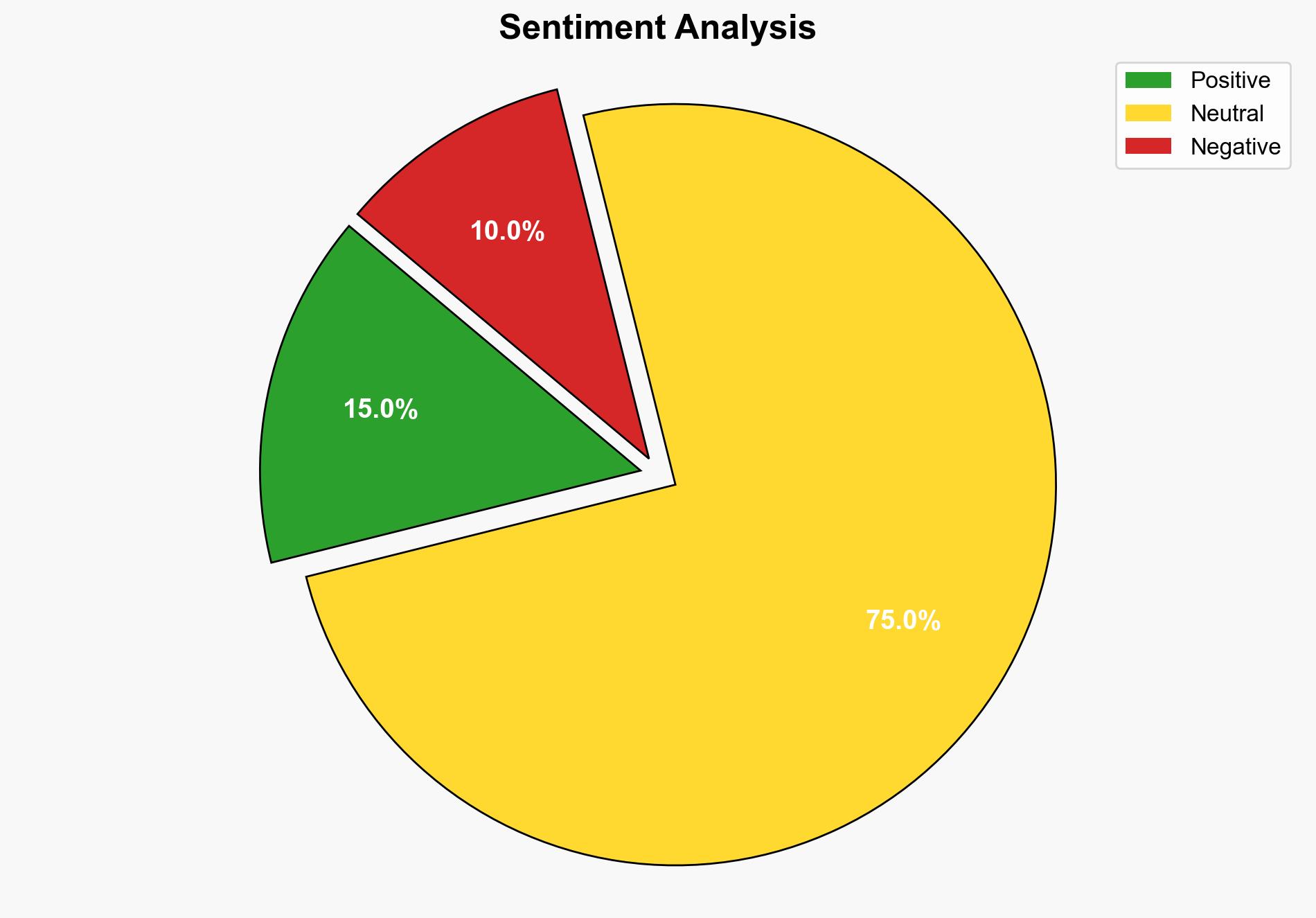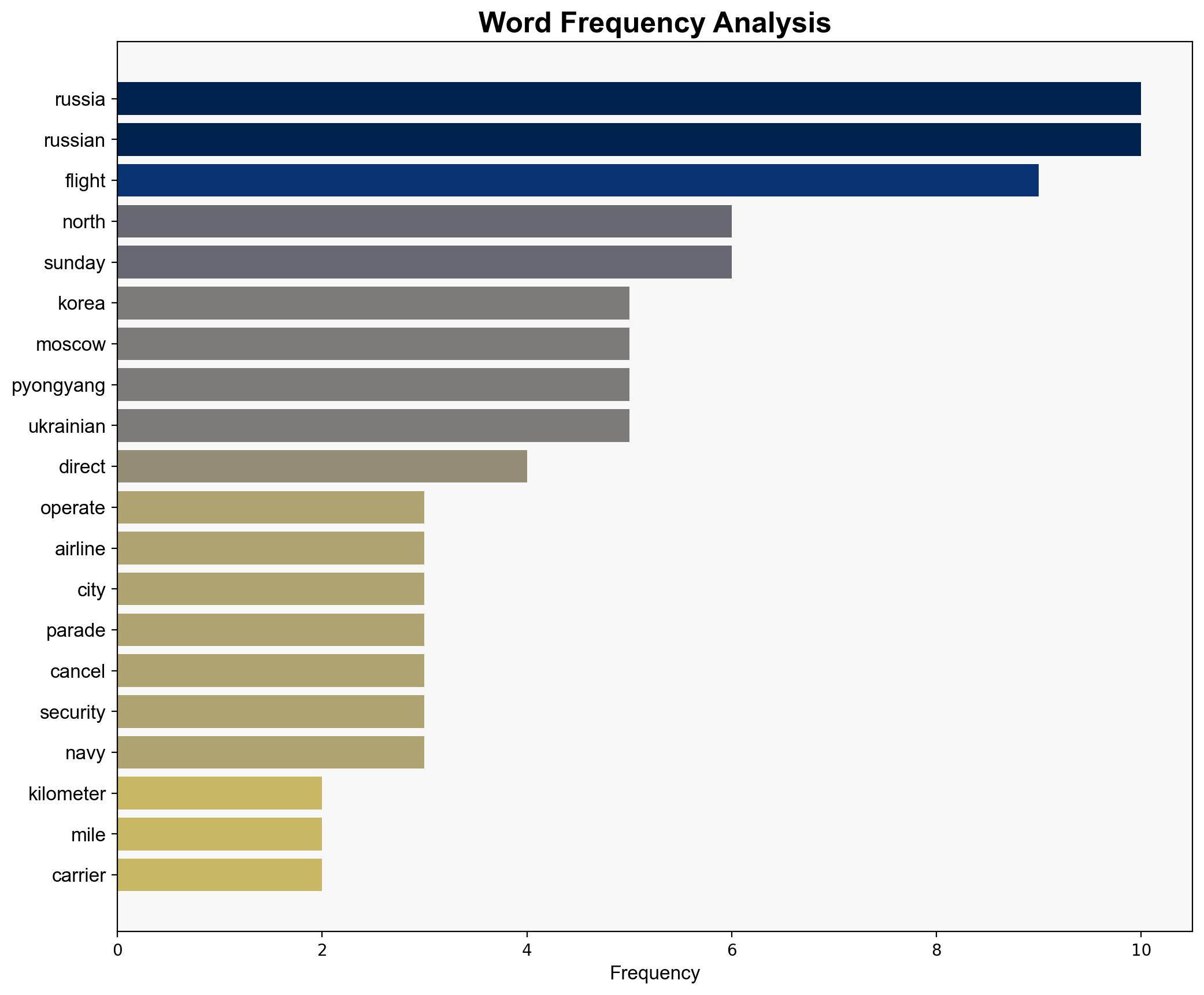Russia opens new direct flights to North Korea – DW (English)
Published on: 2025-07-27
Intelligence Report: Russia opens new direct flights to North Korea – DW (English)
1. BLUF (Bottom Line Up Front)
The initiation of direct flights between Russia and North Korea likely signifies a strategic deepening of bilateral relations, potentially enhancing military and economic cooperation. The most supported hypothesis suggests this move is part of a broader geopolitical alignment against Western influence, particularly in the context of the Ukraine conflict. Confidence level: Moderate. Recommended action: Monitor developments in Russia-North Korea relations for shifts in regional military dynamics and potential sanctions evasion.
2. Competing Hypotheses
1. **Hypothesis A**: The new direct flights are primarily a commercial venture aimed at boosting economic ties and tourism between Russia and North Korea. This hypothesis suggests that the flights are intended to foster economic growth and cultural exchange, with minimal strategic military implications.
2. **Hypothesis B**: The flights are a strategic maneuver to strengthen military and diplomatic ties between Russia and North Korea, potentially facilitating covert military cooperation and support against Ukraine. This hypothesis posits that the flights could be used to transport military personnel or equipment under the guise of civilian travel.
Using the Analysis of Competing Hypotheses (ACH) 2.0, Hypothesis B is better supported due to the context of increased military cooperation and the geopolitical alignment against Western powers.
3. Key Assumptions and Red Flags
– **Assumptions**:
– Hypothesis A assumes that economic motivations are the primary driver, ignoring potential strategic military objectives.
– Hypothesis B assumes that Russia and North Korea are willing to risk international scrutiny for strategic gains.
– **Red Flags**:
– Lack of transparency in flight operations and passenger manifests could indicate covert activities.
– The rapid establishment of flights amidst geopolitical tensions may suggest ulterior motives beyond economic interests.
4. Implications and Strategic Risks
– **Geopolitical**: Strengthened Russia-North Korea ties could destabilize regional security and complicate diplomatic efforts in the Korean Peninsula.
– **Military**: Potential for increased military collaboration, including arms transfers or joint exercises, posing a threat to regional stability.
– **Economic**: Sanctions evasion through increased trade and financial transactions between the two nations.
5. Recommendations and Outlook
- Enhance intelligence collection on Russia-North Korea interactions, focusing on military and economic exchanges.
- Engage with regional allies to monitor and counter potential military escalations.
- Scenario-based projections:
- Best: Flights lead to economic growth without military implications.
- Worst: Flights facilitate covert military operations, escalating regional tensions.
- Most Likely: Flights serve dual purposes, with economic and strategic military implications.
6. Key Individuals and Entities
– Nordwind Airlines: Russian carrier operating the flights.
– Dmitry Peskov: Kremlin spokesman providing context on security concerns.
7. Thematic Tags
national security threats, geopolitical dynamics, regional stability, military cooperation




